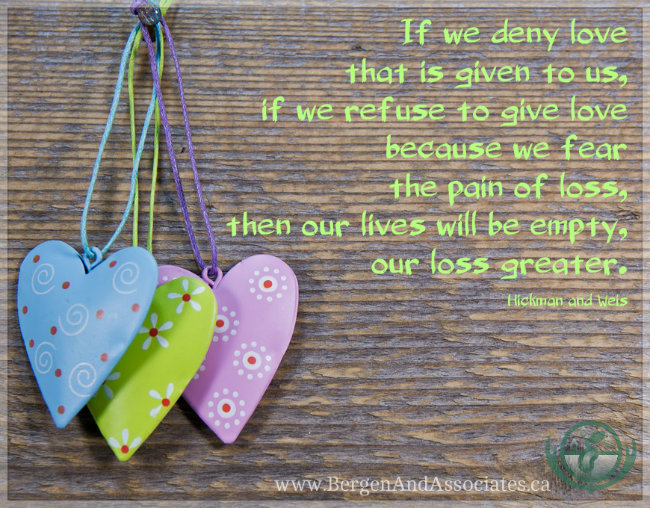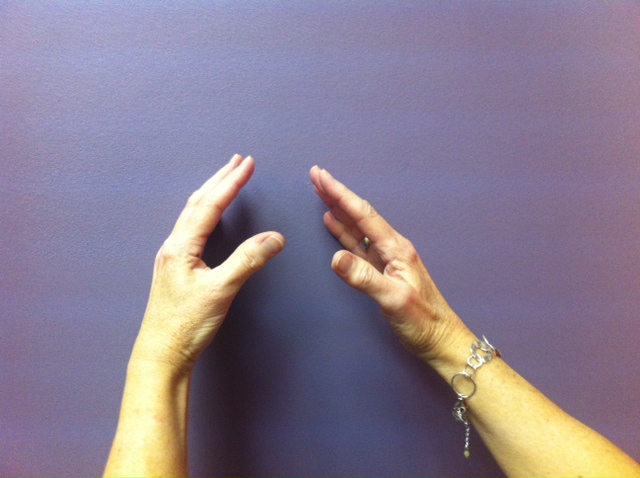I am grateful. I have colleagues that I work with daily in our offices that I respect and admire. They wow me with their insights and wisdom. If you could hear our walls talk, you would hear stories of wonder–the work with the therapists do with our clients is incredible.
Sabrina Friesen is one of these wise and wonderful colleagues of mine. I am fortunate to know and work with her…and she shares with us here on the blog today…
Our house had recently been under the weather. Like reaaalllly under the weather. I don’t even want to add up the number of visits to the doctor we have collectively had in the past three weeks. I’m not sure about you, but when people don’t feel well here there are a few things that happen:
- We wear our pajamas all day.
- We drink indiscriminate amounts of juice and/or tea.
- We watch TV. Lots of TV.
On a particularly gnarly Saturday a little bit ago, with the one then-healthy member of our family shipped off with friends and the two boys happily watching sports, I set myself up in our dark basement with tea and tissues and hours of Call the Midwife on Netflix to keep me company in between the coughs. I can’t remember the last time I sat for hours (and hours, and hours) and just watched a show. It was kind of magical.
For those of you who aren’t fans, I don’t blame you. It’s about midwives (and babies) and they say things like placenta. It’s definitely not a show for everyone. But this period drama about a nurses’ station run by nuns and staffed by midwives in the East End of London, England in the 1950’s is quite captivating for me at least. It’s a show about people, social classes, community, and life and death and what it means to intersect in the lives of others.
What can I say, I’m a therapist – I am all about people and their stories.

In the final episode I watched, one particular scene stood out to me. A midwife, Nurse Noakes, who was pregnant and ready to pop with her own wee one at any time was sitting with Fred, the handyman at the nurses’ station. Fred was holding his own brand new granddaughter, whom the nurse had just helped deliver. As he held this wee bundle and caressed her teeny tiny baby feet, he said to Nurse Noakes:
“I grew up in me barefeet. My dad spent more on beer than he did on shoe leather. I used to think, ‘When I have kids I’m going to give them shoes, hot dinners, a happy home. And I managed all three. ‘Till Hilter intervened. When the bomb dropped I wasn’t there. And that’s what makes you a parent, Nurse Noakes. Proximity. You can’t sell that in the shops.”
Merriam Webster defines proximity as the state of being near.
Proximity.
It’s a word I use in session with clients when we’re talking about relationships. I hold my two hands up in the air, thumbs and fingers together – with fingers pointing towards each other as if they wanted to kiss. It’s my (very poor) visual of two people engaged and looking at each other. This closeness, with fingers representing faces, is a relationship ideal.

Two people near to each other, looking at each other, close and accessible.

This is the kind of connection we so often long for in relationship.
But unfortunately for us, relationships are often fraught with disappointment, frustration, and hurt feelings. What happens to those two hands that are close and pointed at each other is that somewhere along the line, one person gets hurt.
Maybe it’s a parent who is hurt that their kid lied to them again, so we emotionally (and sometimes physically) turn away and become cold and distant. We’ve turned the back of our head to them, and the proximity and accessibility we once shared is now gone. Imagine the two hands that were once pointed towards each other now far apart, with one turned away. The other looks on, seeing only the butt of the person they love and want to reach.
Ouch.
Maybe it’s a ‘joke’ that your husband told at your expense at the latest work function that got under your skin. That pain might lead you to give him the cold shoulder, maybe move over on the couch, or turn over in bed when he puts his hand on your back and wants to draw near.
Maybe a friend hasn’t responded to the email you sent her last week, or the phone call from yesterday, and you feel like you’re the only one putting in work. So you exclude her from the girls’ night text and plan a fun night without her, maybe even ignoring a call as you’re getting ready to head out for the evening.
I think that handyman Fred is really on to something here with this whole proximity business.
What does it mean to be accessible to someone else? What does it mean to exist in the state of being near?
I can tell you what it isn’t.
Proximity is not staying close enough so someone can step on you again, and again, and again. It’s not becoming a doormat who never leaves, or taking another blow to your confidence so someone else can feel important. Proximity doesn’t mean staying so close when it doesn’t feel good.
I simply wonder if there are ways to get a little space without doing the whole turn-around-so-you-can-see-my-behind thing?

I don’t think a lot of us like to feel alone.
More specifically, I don’t think we like it when someone we value and depend on all of a sudden disappears on us – be it physically or emotionally (or both). This can be excruciating, and leaves us thinking all sorts of nasty thoughts about how they must not love us, how we’re not enough, and how we did it wrong again. Or maybe you get vindictive, dreaming up ways to stick it to them so they can pay for how badly they hurt you when they left you there all alone.
Sometimes my pre-schooler gets under my skin. We are a lot alike in our propensity towards intensity and we get into these seasons where we trigger each other to no end. Now I love this kid with some ferocious mama love, and I adore the intensity of joy and delight and celebration this little brings into our family.
But sometimes I get so mad that I can’t be in the same room as her. I could storm out and slam the door, ignore her, and take a moment to calm down. That could work. But it feels kinda yucky leaving her there, not knowing where I went or what happened.
I am all too aware that she might come to think that, “when I don’t act the way she wants – my mom can’t be with me.” And that thought nearly breaks my heart, because it has way less to do with her attitude and way more to do with my hurt feelings and sense of inadequacy as a parent.
Instead of pulling away and disappearing on her, my typical response (when I don’t absolutely lose my marbles and go into loud-mama mode, because, folks, that happens too!) is to let her know that I’m feeling frustrated and need a time out. Then I lock myself in my bathroom for a few moments and hope to goodness she doesn’t come hunting me down, because that just might push me over the edge.
When feelings are hurt, what does it look like to take a few steps back? Imagine the kissy fingers are now not so close. Maybe an arm-width’s apart even, but the “faces” are still pointed at each other. They know where the other is. It’s distant, but they can find each other, and if both take steps – they are steps toward each other instead of away from each other.

What do you do when you see someone’s behind? Do you run towards them and chase them down? Do you turn away too? Do you stand still and wait for them to turn around?
What about when your feelings are hurt, what does that look like? Who sees your backside and loses sight of you?
I wonder, what does it look like to back up from someone you love but to still remain proximate? How do you deal with the inevitable bumps and bruises that come with being close, but stay accessible to those you love?
Maybe we’re going through all the right motions, and doing the right things. Maybe we’re fighting like cats and dogs and are on the brink of calling it quits. If handyman Fred is as wise as I think he is, he’d probably say neither of that really matters, so long as we can see each other.






Write a Comment